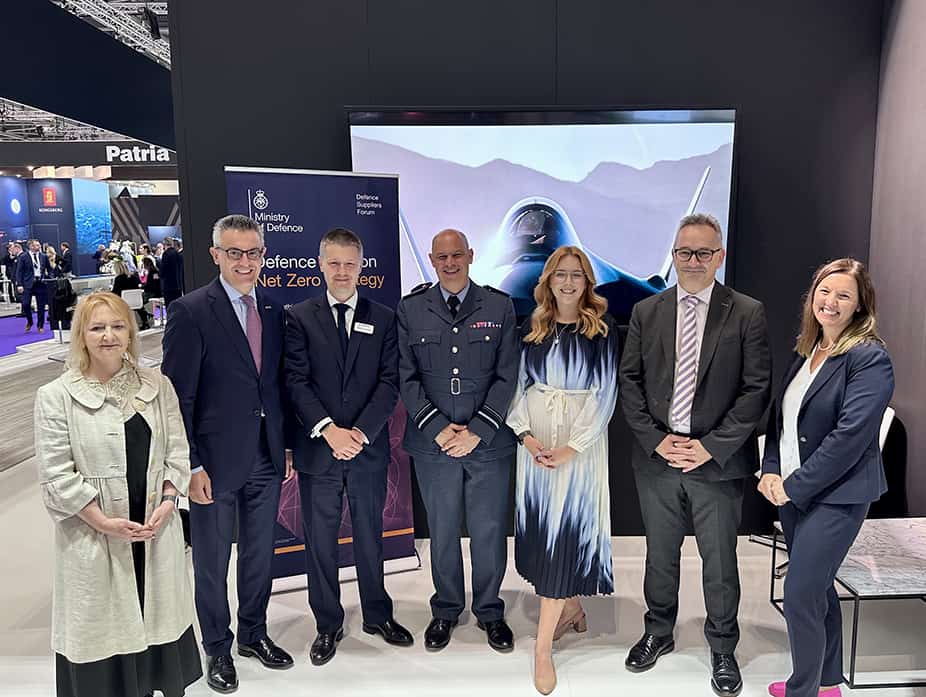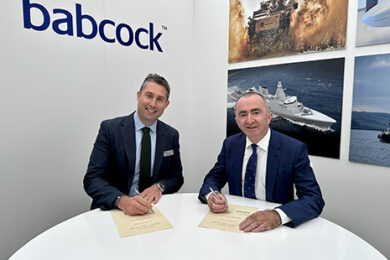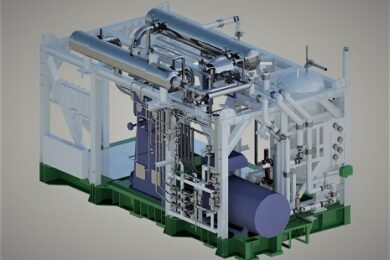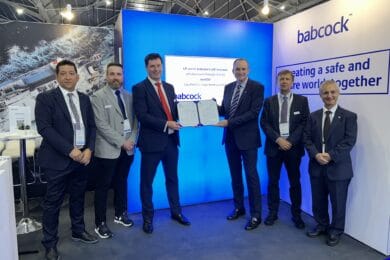Environment
Reduce emissions, Integrate environmental sustainability
Now more than ever, what we do matters
Our environment priorities:
Reducing emissions and setting science-based targets to get to net zero across our estates, assets and operations by 2040.
Integrating environmental sustainability into programme design to minimise waste and optimise resources.
Our mission to net zero
For more information on Plan Zero 40:
See our Sustainability Report 2023, pg 64.
Read about our approach to decarbonising complex global estates.
We’re working towards full disclosure to the Task Force on Climate-related Financial Disclosures (TCFD) requirements, as per Listing Rule LR9.8.6R. We’re committed to conducting detailed carbon assessments of our products and services and developing net zero roadmaps.
We have set governance with respect to climate change, integrated risk management and scenario planning in our strategic planning cycles and have set some initial targets.
We’ve conducted a strategic climate-related risk assessment to assess the financial impact of the key risk themes on the organisationÔÇÖs business strategy and financial planning.
For more information on TCFD see our Sustainability Report 2023, pg 67 and for details on principle risk see page 87.
We achieved Carbon TrustÔÇÖs Route to Net Zero standard ÔÇô read more in our article.
Smart solutions
WeÔÇÖre supporting our customers by providing smart answers to joint challenges, such as combating climate change. WeÔÇÖre making their mission our mission by developing innovative low carbon products and services and driving this through our value chain to enable further emission reductions as we work towards achieving a net zero future, together.
We’ve signed the MOD Defence Aviation Net Zero Charter, demonstrating our commitment to sustainability in our own operations and to collaborating with our customers and industry partners in achieving common goals.
, a partnership that represents a commitment to sustainability and resonates with Volvo Construction Equipment’s pioneering efforts in the electric vehicle revolution.

Find out more
Find out about how weÔÇÖre working alongside the RAF to take a considerable step towards a sustainable future in aviation. Our partnership with Zero to explore how synthetic fuels can be used to power a range of addressable platforms including infrastructure and powertrains. How weÔÇÖre supporting the British Army with electric vehicle conversion, and exploring the use of hybrid systems in military land vehicles. How we have secured a world-first contract with our innovative ecoCO2┬« technology solution. And, how we have received Approval in Principle (AiP) from Classification Society LloydÔÇÖs Register for multi-fuel gas supply and CO2 cargo handling systems ecoFGSS-FLEX┬« and ecoCO2┬«.
Find out how weÔÇÖre supporting the British Army with electric vehicle conversion. And, how we are exploring the use of hybrid systems in military land vehicles.
Read about how we have secured a world-first contract with our innovative ecoCO2┬« technology solution. And, how we have received Approval in Principle (AiP) from Classification Society LloydÔÇÖs Register for multi-fuel gas supply and CO2 cargo handling systems ecoFGSS-FLEX┬« and ecoCO2┬«.
Curious about climate
Integrating environmental sustainability
WeÔÇÖre on a mission to integrate environmental sustainability into our programme design to reduce waste, optimise our resources and minimise the impact of our operations.
Biodiversity and the natural environment
WeÔÇÖre committed to both maintaining and enhancing the biodiversity of the ecosystems we interact with, as we strive to protect the environment and adapt to the impacts of climate change. As we work on new initiatives to increase biodiversity across our estate by 10% by 2030, we look forward to ultimately developing a broader natural environmental protection programme in our operations.
Water consumption management
WeÔÇÖre working to manage our water consumption responsibly and reduce our impact on the environment. WeÔÇÖre currently developing water management plans for most of our significant sites by 2024.
You can find out more about how weÔÇÖre integrating sustainability into our operations on page 66 of our annual report.
Waste reduction
WeÔÇÖre working towards zero controlled waste to landfill by 2025 and completely eliminating the use of single-use plastics by 2027.





